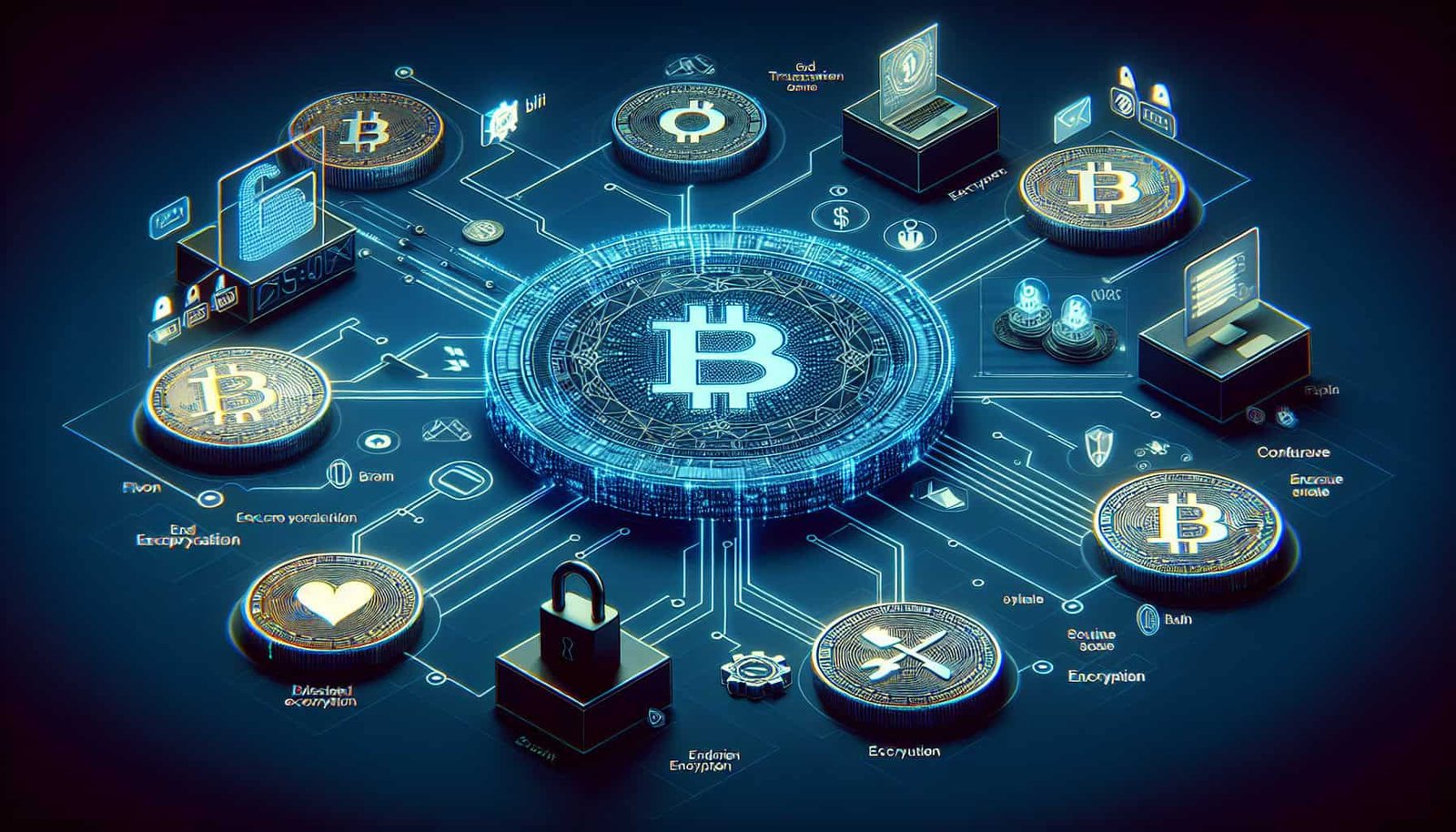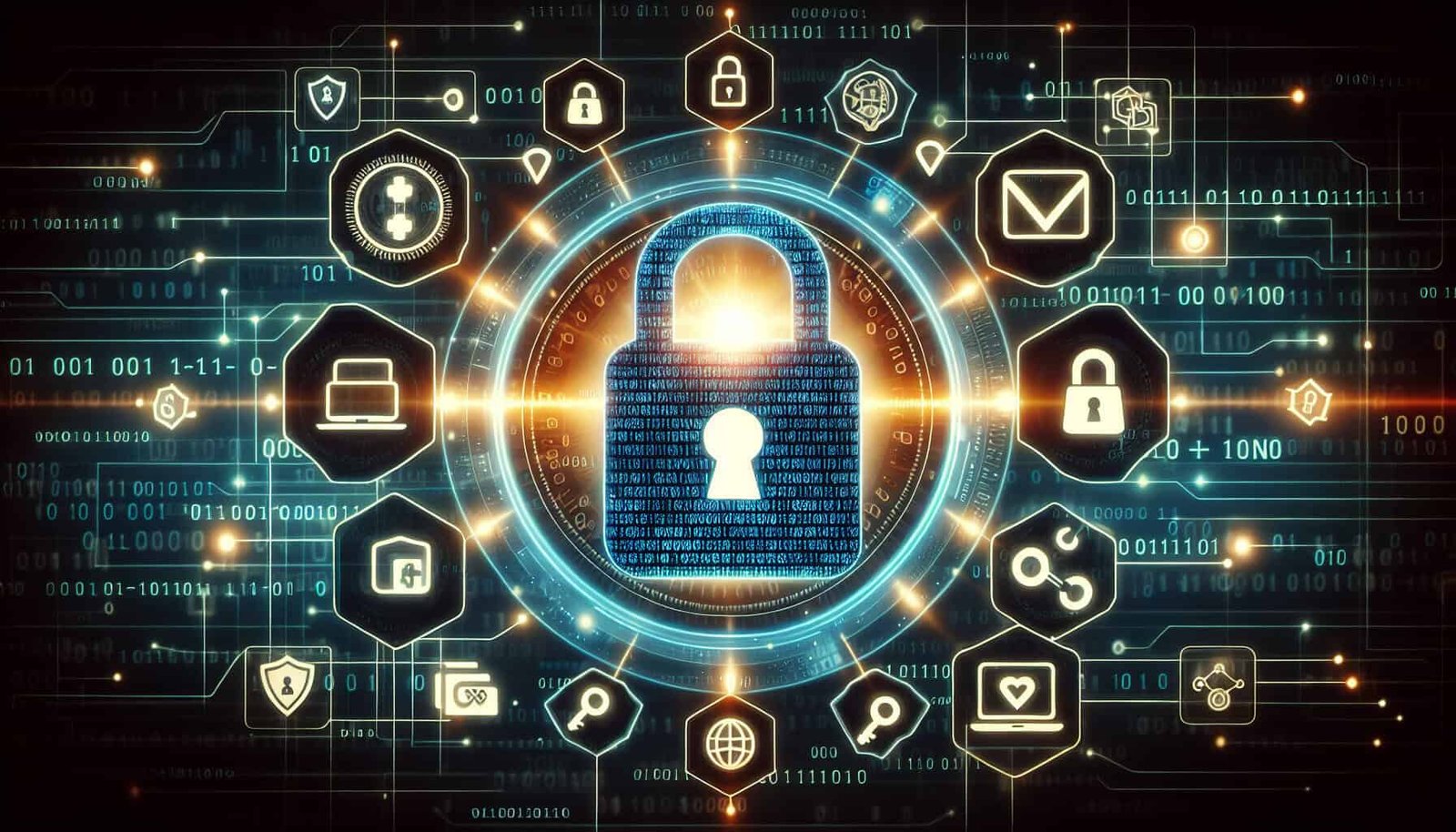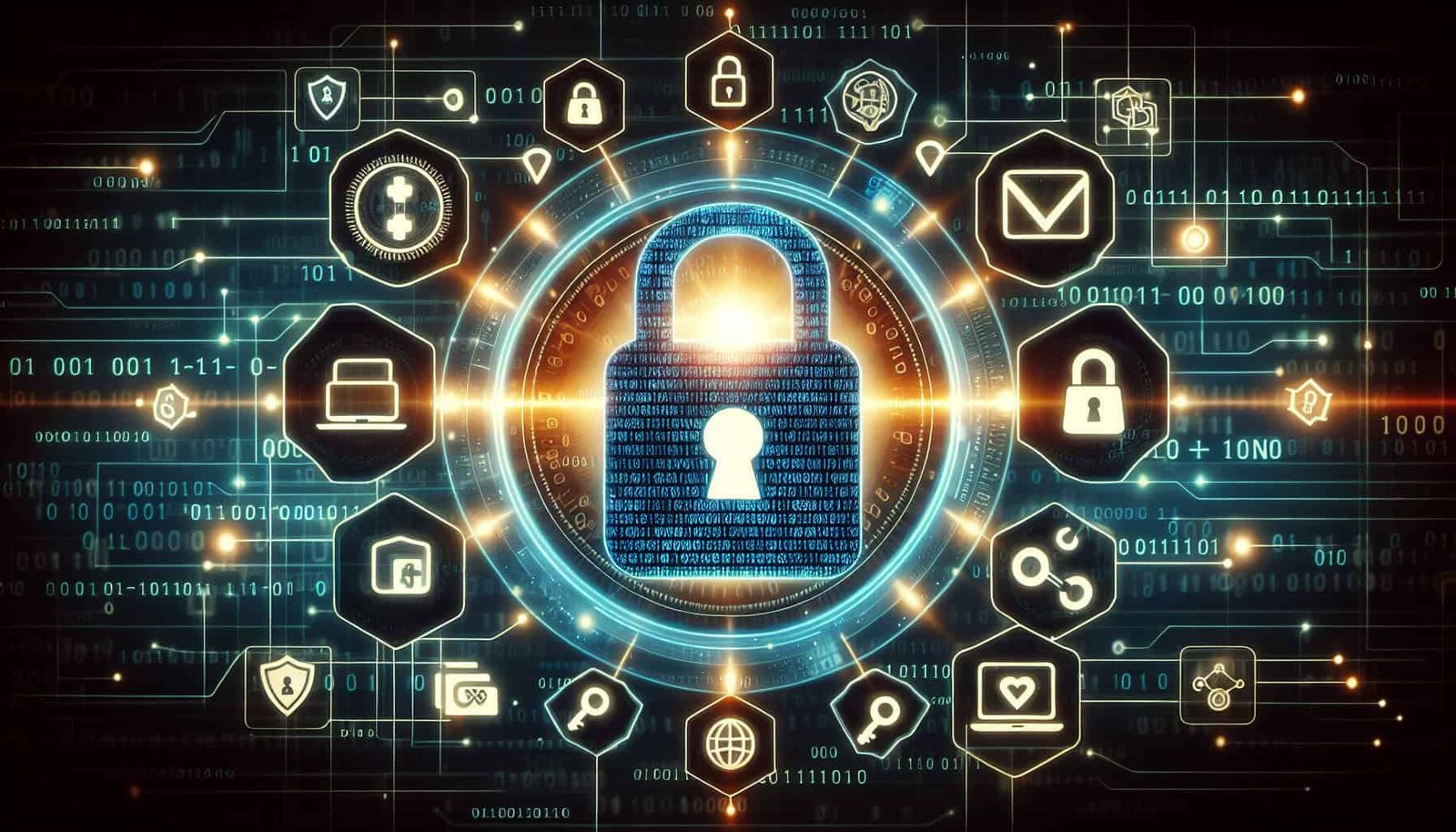In a world where digital currencies like Bitcoin and Ethereum are becoming increasingly popular, ensuring the security of your crypto-related discussions is paramount. The article “Secure Communication: Use Secure Communication Channels For Crypto-related Discussions” emphasizes the need to prioritize secure communication channels for discussing anything related to cryptocurrencies. With the potential for hackers and cybercriminals to eavesdrop on sensitive conversations and steal valuable information, it is essential to adopt encrypted messaging platforms and secure channels to protect your privacy and safeguard your investments. This article provides insights and recommendations on the importance of secure communication for crypto enthusiasts and offers practical tips to ensure your discussions remain confidential and protected.
Importance of Secure Communication Channels
Protecting Sensitive Information
In any communication, especially when discussing sensitive matters like crypto-related discussions, it is crucial to ensure the protection of sensitive information. Secure communication channels play a vital role in safeguarding data from unauthorized access or interception. By using secure communication channels, you can have peace of mind knowing that your private conversations and confidential information are protected.
Preventing Data Breaches
Data breaches have become a common occurrence in today’s digital world, and they can have severe consequences. Using secure communication channels significantly reduces the risk of data breaches by encrypting the information exchanged between parties. Encryption converts the data into an unreadable format, making it nearly impossible for hackers or unauthorized individuals to decipher the information. By preventing data breaches, secure communication channels help maintain the integrity and trustworthiness of sensitive discussions.
Maintaining Privacy
Privacy is a fundamental right that individuals should not compromise, especially in crypto-related discussions. Secure communication channels ensure that your discussions remain private and confidential. By implementing encryption and other security measures, these channels prevent unauthorized access to conversations and protect your privacy from prying eyes. It is essential to prioritize privacy in all your communication, particularly in the context of cryptocurrency discussions, where confidentiality is of utmost importance.
Avoiding Eavesdropping
Eavesdropping refers to the act of intercepting and listening to private conversations without the knowledge or consent of the parties involved. Using secure communication channels helps mitigate the risk of eavesdropping by utilizing encryption techniques. Encryption ensures that only the intended recipient can decrypt and read the messages, preventing any potential eavesdroppers from understanding the content of the communication. By avoiding eavesdropping, secure communication channels offer a higher level of security and protect your discussions from unauthorized surveillance.
Types of Secure Communication Channels
End-to-End Encryption
End-to-End Encryption (E2EE) is a robust method of securing communication by encrypting the data from the sender and decrypting it at the recipient’s end. This type of encryption ensures that only the intended recipients can access the information and prevents any intermediaries or malicious entities from intercepting or tampering with the data. E2EE is widely used in popular messaging apps and ensures that your conversations remain confidential, even if the data is intercepted during transit.
Virtual Private Networks (VPNs)
Virtual Private Networks (VPNs) create a secure and encrypted connection between your device and the internet. By encrypting the data traffic, VPNs protect your communication from potential eavesdroppers and provide an additional layer of security. VPNs are particularly useful when accessing public Wi-Fi networks, which may be insecure. When discussing crypto-related topics, using a VPN can help protect your privacy and prevent unauthorized access to your conversations.
Secure Messaging Apps
Secure messaging apps are designed with built-in security features that prioritize user privacy. These apps often employ end-to-end encryption to ensure that only the intended recipients can access the messages. Additionally, they may offer features like self-destructing messages, screenshot prevention, and identity verification to enhance the security of communication. When engaging in crypto-related discussions, using secure messaging apps adds an extra layer of protection to your conversations.
Secure Email Services
While email may not be the most secure form of communication, there are secure email services available that incorporate encryption to protect the content of your emails. These services use end-to-end encryption or other encryption techniques to ensure that only the intended recipients can read the emails. Utilizing secure email services is essential when discussing sensitive crypto-related matters, as it adds an additional level of security to your communication.

End-to-End Encryption
Definition and Function
End-to-End Encryption refers to a method of encrypting data in such a way that only the intended recipients can access and decipher the information. In this encryption technique, the message is encrypted by the sender, and the decryption key is only available to the intended recipients. It ensures that the data remains confidential and privacy is maintained throughout the communication process.
How It Works
When using end-to-end encryption, the message or data is encrypted by the sender’s device using an encryption algorithm. The encrypted data is then transmitted to the recipient’s device, where it can only be decrypted with the recipient’s unique decryption key. This ensures that even if the data is intercepted during transit, it remains unreadable to unauthorized entities.
Benefits and Limitations
End-to-End Encryption offers several benefits for secure communication. Firstly, it ensures that the content of the communication remains confidential and can only be accessed by the intended recipients. Secondly, it protects the data from interception or tampering during transit, adding an extra layer of security. However, it is important to note that end-to-end encryption does not protect against malware or other security threats on the devices themselves. It is essential to practice good cybersecurity hygiene and use secure devices to ensure the overall security of the communication process.
Virtual Private Networks (VPNs)
Understanding VPNs
A Virtual Private Network (VPN) is a secure and encrypted connection between your device and the internet. When you connect to a VPN, your internet traffic is routed through an encrypted tunnel, protecting it from potential eavesdroppers, hackers, or surveillance. VPNs hide your IP address and location, making it difficult for others to track your online activities. Using a VPN is particularly important when discussing crypto-related matters as it ensures the privacy and security of your communications.
Use Cases for Crypto-related Discussions
VPNs are particularly relevant when engaging in crypto-related discussions due to the sensitivity and confidentiality of the topics. When discussing cryptocurrencies or participating in online crypto communities, using a VPN adds an extra layer of security by encrypting your communication and protecting your identity. Additionally, VPNs allow you to access crypto-related websites, platforms, and exchanges that may be restricted in certain regions, ensuring you have unrestricted access to information and services.
Choosing a Reliable VPN Provider
When selecting a VPN provider for secure communication, it is crucial to choose a reliable and reputable service. Look for providers that prioritize strong encryption protocols, have a strict no-logs policy, and offer a wide range of server locations. Additionally, consider factors like connection speed, user-friendly interface, and customer support. It is advisable to research and read reviews before choosing a VPN provider to ensure you select one that meets your specific security and privacy needs.

Secure Messaging Apps
Overview of Secure Messaging Apps
Secure messaging apps are designed to prioritize user privacy and protect communication from unauthorized access. These apps often employ end-to-end encryption, which ensures that only the intended recipients can read the messages. Secure messaging apps provide a range of additional security features like self-destructing messages, passcode locks, and two-factor authentication to enhance the security of communication.
Features to Look for in a Secure Messaging App
When choosing a secure messaging app for crypto-related discussions, there are certain features you should look out for. Firstly, end-to-end encryption is essential to ensure the confidentiality of your messages. Additionally, features like screenshot prevention, identity verification, and self-destructing messages can add an extra layer of security to your conversations. User-friendly interfaces and compatibility across multiple devices are also important factors to consider.
Recommendations for Secure Messaging Apps
Some popular secure messaging apps that prioritize user privacy and security include Signal, Telegram, and WhatsApp (with end-to-end encryption enabled). Signal is highly recommended for its robust encryption and commitment to user privacy. Telegram offers a range of security features and supports group chats, while WhatsApp’s end-to-end encryption ensures the confidentiality of your messages. It is advisable to research and choose a secure messaging app that meets your specific requirements and aligns with your privacy needs.
Secure Email Services
Why Secure Email Services are Essential
Email is a commonly used form of communication but can be vulnerable to hacking and interception. Secure email services provide an additional layer of protection by encrypting the content of your emails, ensuring that only the intended recipients can read them. In the context of crypto-related discussions, where sensitive information may be exchanged via email, using secure email services is essential to protect the confidentiality of the communication.
End-to-End Encryption for Emails
Many secure email services employ end-to-end encryption to protect the data contained within the emails. This ensures that the content of the emails is converted into an unreadable format during transmission, and only the intended recipients can decrypt and read the messages. By implementing end-to-end encryption for emails, secure email services uphold the privacy and security of your communication.
Popular Secure Email Service Providers
Some popular secure email service providers include ProtonMail, Tutanota, and Hushmail. ProtonMail is known for its strong encryption and user-friendly interface. Tutanota offers end-to-end encryption with additional features like encrypted calendar and contacts. Hushmail provides robust encryption and supports custom domains. It is advisable to research and choose a secure email service provider that aligns with your privacy requirements and offers the necessary features for crypto-related discussions.

Best Practices for Secure Communication
Strong and Unique Passwords
Creating strong and unique passwords is crucial for maintaining the security of your communication channels. Use a combination of uppercase and lowercase letters, numbers, and special characters when creating passwords. Avoid using easily guessable information like your name, birthdate, or common words. Furthermore, ensure that each of your accounts has a unique password to prevent unauthorized access in case of a security breach.
Two-Factor Authentication
Enable two-factor authentication (2FA) whenever possible to add an extra layer of security to your communication channels. 2FA requires an additional verification step, such as a temporary code sent to your mobile device, along with your password to access your accounts. This provides an added level of protection against unauthorized access, even if your password is compromised.
Regular Software Updates
Regularly update the software on your devices, including operating systems, applications, and security patches. Software updates often include important security fixes that address vulnerabilities that could be exploited by hackers. By keeping your devices up to date, you ensure that you have the latest security measures in place to protect your communication channels.
Avoiding Phishing Attacks
Phishing attacks are common methods used by hackers to trick individuals into providing sensitive information, such as passwords or financial details. Be cautious of suspicious emails, messages, or links and avoid clicking on unknown or suspicious sources. Always verify the authenticity of emails or messages before providing any personal or sensitive information. Educate yourself on common phishing techniques and stay vigilant to protect your communication channels from potential threats.
Educating Users on Security Risks
Educating yourself and others about the security risks associated with communication channels is crucial for maintaining secure practices. Stay informed about the latest security trends, best practices, and emerging threats. Share this knowledge with colleagues, friends, and family to promote a culture of security-awareness and ensure the protection of communication channels against potential vulnerabilities.
Considerations for Group Discussions
Encrypted Group Messaging
When participating in group discussions, especially regarding crypto-related matters, ensure that the communication channel supports encrypted group messaging. This feature ensures the confidentiality of discussions within the group by employing end-to-end encryption for all participants. By utilizing encrypted group messaging, you can have secure and private group discussions without compromising the privacy of the messages exchanged.
Verifying Identities
In group discussions where trust and security are paramount, take steps to verify the identities of the participants. This can be achieved by utilizing encryption techniques that allow secure identity verification, such as public key infrastructure (PKI). Verifying the identities of participants helps prevent unauthorized individuals from infiltrating the group and ensures that only trusted members are involved in the discussion.
Secure File Sharing
Group discussions often involve the sharing of files or documents related to crypto-related matters. When sharing files within a group, it is essential to use secure file-sharing methods. This can include utilizing encrypted file-sharing platforms or employing end-to-end encryption for file transfers. By prioritizing secure file sharing, you can protect the confidentiality of the shared information and prevent unauthorized access to the files.

Common Mistakes to Avoid
Using Insecure Communication Channels
One common mistake to avoid is using insecure communication channels when discussing crypto-related matters. It is crucial to prioritize secure communication channels that offer encryption and other security features. Avoid using unsecured messaging apps, email services, or public Wi-Fi networks that can leave your conversations vulnerable to interception or unauthorized access.
Sharing Sensitive Information Over Unsecured Networks
Sharing sensitive information, such as account credentials or private keys, over unsecured networks can pose a significant risk. Public Wi-Fi networks, for example, are often unsecured and can be easily exploited by hackers. It is essential to avoid sharing sensitive information over such networks and only use secure communication channels or VPNs when accessing the internet on public networks.
Neglecting Security Updates
Neglecting security updates leaves your devices and communication channels vulnerable to known security vulnerabilities. Regularly update your devices, including operating systems and applications, to ensure you have the latest security patches installed. By staying up to date with security updates, you enhance the overall security of your communication channels and protect them from potential threats.
Conclusion
Adopting secure communication practices is imperative, especially when discussing crypto-related matters. By using secure communication channels, you can protect sensitive information, prevent data breaches, maintain privacy, and avoid eavesdropping. End-to-End Encryption, Virtual Private Networks (VPNs), Secure Messaging Apps, and Secure Email Services are effective options to ensure the security and privacy of your communication. Additionally, following best practices like using strong passwords, enabling two-factor authentication, staying updated with security patches, and avoiding phishing attacks enhance the overall security of your communication channels. By prioritizing secure communication, you can protect the confidentiality of your crypto-related discussions and contribute to a safer digital environment.


